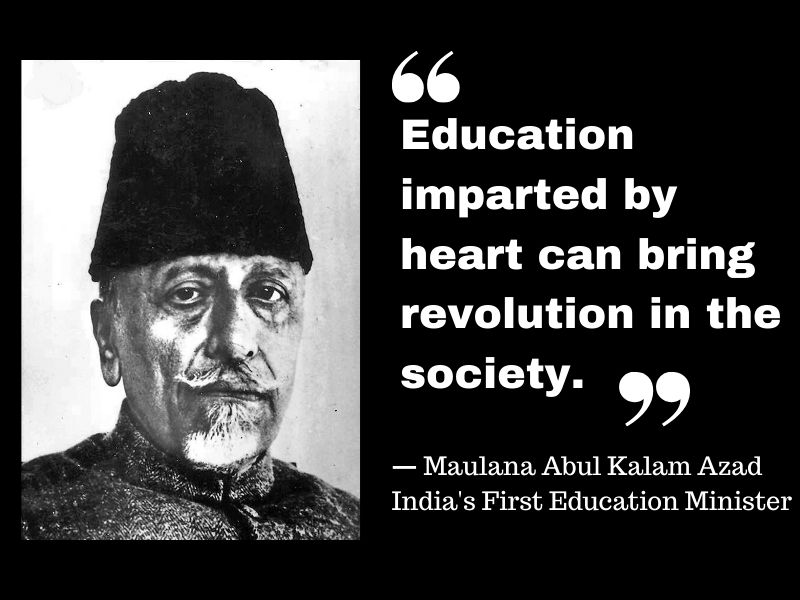National Education Day 2019 is observed on the birth anniversary of Maulana Abul Kalam Azad, who happens to be the first education minister of free India. One of the most notable names during India’s freedom struggle, he was also a renowned scholar, poet, journalist, and educator.
A Bharat Ratna awardee, during his tenure as the education minister (1947-58), Azad founded the most important institutions we have now including the IIT, UGC, Sangeet Natak Akademi, Lalit Kala Academy, Sahitya Academy, Indian Council for Cultural Relations and School of Planning and Architecture. He gave emphasis to quality education and believed in free primary and compulsory education to all children up to the age of 14.
Recommended: 10 Facts about Moulana Azad on National Education Day
Azad was no doubt one of the best education ministers. It is important to bring a strong and reformative change, a strong and informed leader is required. Compared to Azad’s time, let’s take a look at how the scenario has changed now.
Has education become more political?
“Somehow everything is manipulated by politicians, whether it is revisioning the curriculum or rewriting history”, says Meeta Sengupta, a well-acclaimed educationist, and founder, Centre for Education Strategy. She continues, “Being manipulated by politicians is definitely a problem, and that has been a problem for centuries in a way. And if politicisation of education means being manipulated by the government, then it is not a good thing.”
The government’s job is to rectify the loopholes in the education system and not create more problems. In order to reform education, one to keep in mind that everyone benefits from it. Using education in order to get past an election, is not what society needs.
“Those who do good work in education are welcomed otherwise what is the political incentive. The point is to give better education to the country. If children are going uneducated, the literacy level is going down, if it makes no difference, then what is the point of voting and funding for better schools,” adds Sengupta.
Shiv Visvanathan, Director of the Centre for the Study of Knowledge Systems at O.P. Jindal Global University, Sonipat, believes that one has to “move beyond the spectacular disasters of authoritarian attempts to reform education.” He also adds, “One has to look at the historical and pedagogical processes of such education. Authoritarianism has a dystopian idea of childhood, reducing the playfulness, dreams of children to a functional timetable. The destruction or amputation of childhood is a prelude to most authoritarian reforms. Indeed, the best pedagogies from Maria Montessori to Jiddu Krishnamurti have demonstrated that authoritarianism is incompatible with the creativity, autonomy, and experimentalism that a child needs to enjoy childhood.”
One way or another, education is political. The real question is whether the politics is good or bad?
Sukanya Nandy
Posted in National, News


























